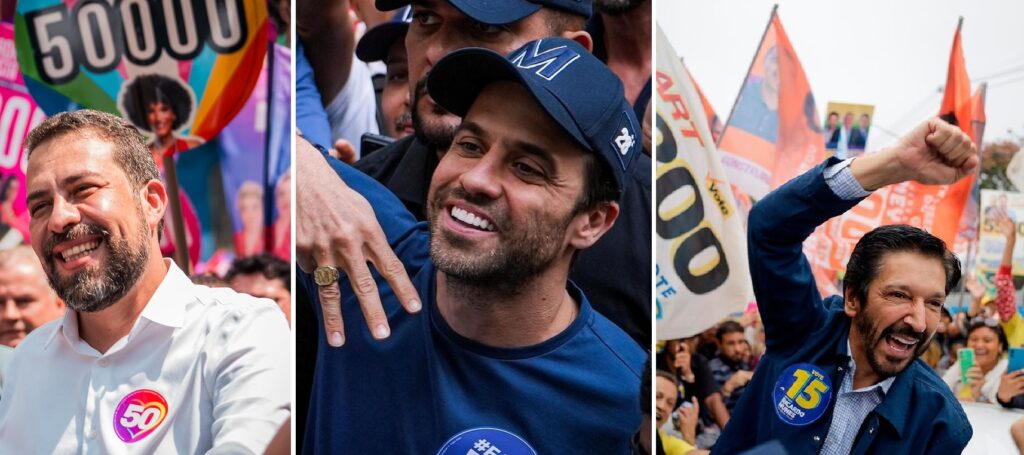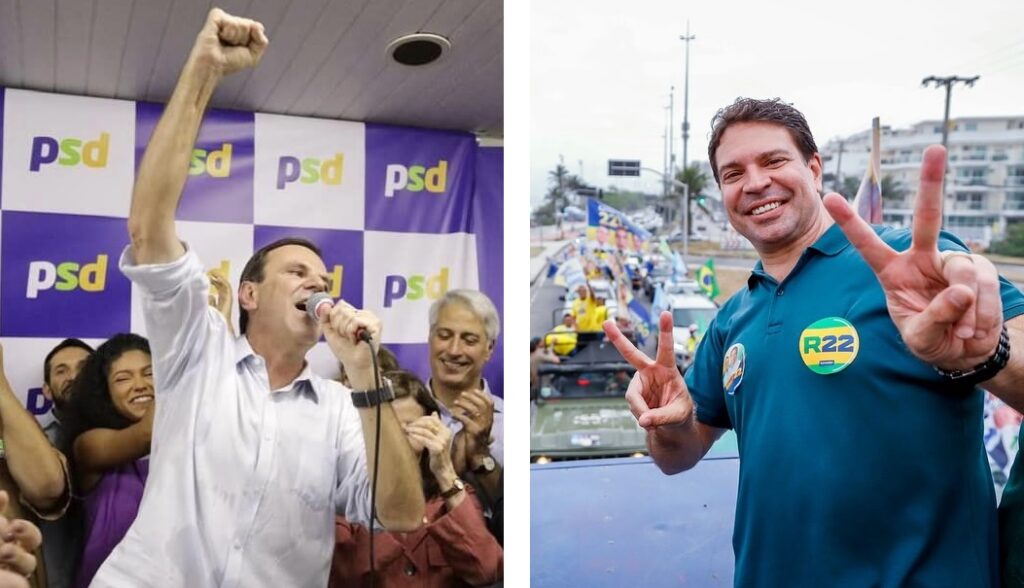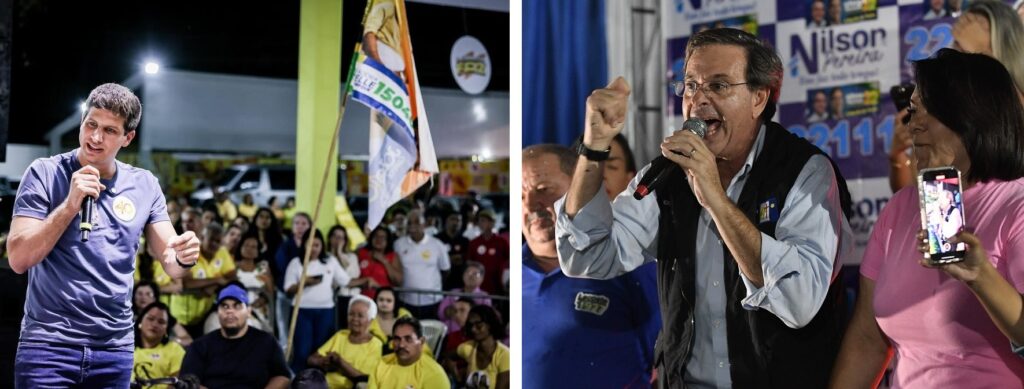São Paulo, Brazil – Over 155 million voters are expected to go to the polls in Brazil this Sunday to elect mayors and city council members in 5,569 municipalities across the country. International observers from the Organization of American States (OAS) and the Mercosur Parliament (Parlasur) will monitor the electoral process in various polling centers throughout the country.
The largest metropolis in the southern hemisphere, the city of São Paulo has more than 9 million eligible voters. Considered an important political job in the country, the mayoralty is contested by 10 candidates, only three of whom appear to have a real chance of winning, according to leading polls.
Federal congressman Guilherme Boulos, a leftist candidate, leads the latest poll conducted by the Datafolha Institute with 26% of voter support. Boulos enjoys the support of Brazilian President Luiz Inácio Lula da Silva, who has actively campaigned for him. He has attended several events alongside Boulos and recorded dozens of videos encouraging supporters to vote for him.
Known for his roots in pro-housing social movements, Boulos has focused on winning the votes of São Paulo’s working-class neighborhoods. His main campaign promises include building 50,000 affordable housing units, implementing full-time education in all municipal schools and expanding the public health system.
Incumbent Mayor Ricardo Nunes, a right-wing politician, is far behind with 24% in the same poll. Nunes has received the discreet support of former president Jair Bolsonaro, who, despite calls from allies, has not been involved in Nunes’ campaign, only mentioning his name in a few online broadcasts in recent days. To secure four more years in office, Nunes has pledged to expand public transportation, creating exclusive bus lanes and a hydrogen-powered light rail system. In terms of public safety, he plans to hire 2,000 more city guards, increasing the force from 7,000 to 9,000 officers.
Although in Brazil public safety is the responsibility of the state governors, to whom the police forces are subordinate, the municipalities carry out complementary work through civil guards.

Tied with Nunes at 24% is Pablo Marçal, a trainer and businessman with a strong far-right platform. Popular among Bolsonaro’s base, Marçal supports conservative causes such as opposition to abortion, traditional family values and promotion of the Christian faith.
Marçal and Bolsonaro, however, do not have a good relationship and often attack each other in online posts. Brazilian political experts believe the former president, who has been declared ineligible to hold public office until 2030, sees Marçal as a threat to fill the vacuum left by his conviction among the conservative base. Marçal’s main proposals for São Paulo include creating 2 million jobs in the city’s poorest areas, tripling the city’s civil guard to 21,000 officers, modernizing public health care, and introducing entrepreneurship and emotional intelligence education for children of little ones.
With no candidate polling more than 50%, a runoff election in São Paulo looks likely.
Rio de Janeiro

In contrast, the mayoral race in Rio de Janeiro appears to have a clear favorite. With more than 5 million voters expected to participate, incumbent Mayor Eduardo Paes is projected to win re-election in the first round.
Paes, a centrist politician with strong support from President Lula, is at 54%, according to Datafolha. Known for his charisma and experience, Paes is running for his fourth term, having previously served as Rio’s mayor from 2009 to 2017.
His main proposals include creating 13,000 new day care spots, building 20,000 affordable housing units, expanding health centers and improving the city’s bus rapid transit system.
Behind with 22% is federal congressman Alexandre Ramagem. A former director general of the Brazilian Intelligence Agency (Abin) under Bolsonaro, Ramagem has the former president’s support, although many see his chances of forcing a runoff as slim.
Ramagem’s proposals include extending school hours, building new health clinics, restructuring the city’s police force to fight organized crime and replacing bus lanes with surface subway lines.
Recife

In Recife, one of the most important cities in the northeast of the country, the race is even more one-sided. Incumbent Mayor João Campos, a 30-year-old rising star from the left, has the support of an overwhelming 74% of voters, while his closest competitor, former Tourism Minister Gilson Machado, lags far behind with just 10%.
Campos, a staunch Lula ally, comes from a prominent political family. His father, former governor of Pernambuco Eduardo Campos, died in August 2014 in a plane crash in the city of Santos, on the coast of São Paulo. At that time, Eduardo was a candidate for the presidency of Brazil and participated in campaign engagements. João inherited his charisma, opinion and talent for politics from his father.
João Campos is often considered a potential future leader in national politics. His second term plans include modernizing Recife’s civil guard, increasing early childhood education and building community centers for the elderly and disabled.
Gilson Machado, Bolsonaro’s running mate, has promised to hire more health care workers, extend clinic hours, create emergency veterinary units and improve teachers’ salaries. However, with his current polling numbers, he may not have the opportunity to put these ideas into action.

